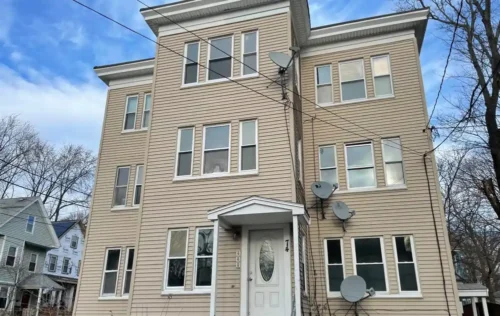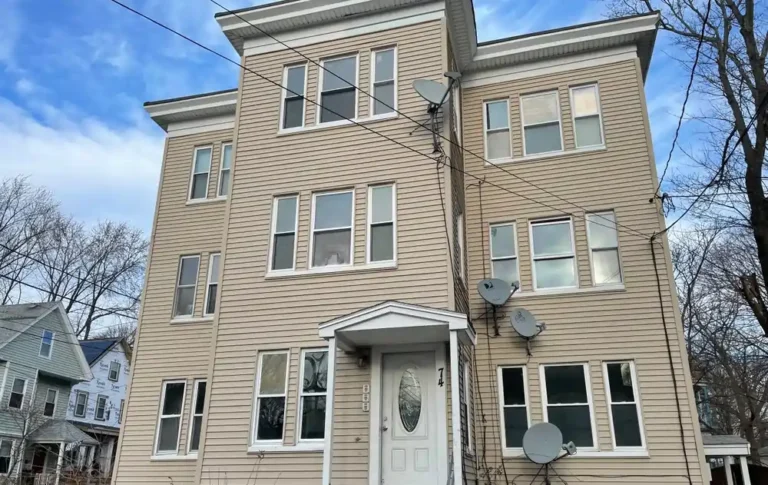
Sober living homes encourage connections with peers who share your commitment to recovery. In addition, attending local meetings, workshops, what is a sober living house and staying engaged with counseling services can provide an added layer of support that’s instrumental in maintaining sobriety. Sober living homes are more than just a place to stay; they’re communities aimed at fostering healing and growth. Here, you’re surrounded by individuals who understand the challenges of addiction recovery firsthand. This peer support system encourages open dialogue, sharing of experiences, and mutual encouragement, creating a network of support that’s invaluable during recovery. Many patients don’t realize the toxicity of prolonged alcohol abuse and how it affects the body.

Medication-Assisted Treatment (MAT)
- These facilities are generally more pleasant and less crowded than halfway houses.
- With rules that encourage personal responsibility and a support system that fosters growth, these homes play a crucial role in the recovery process.
- In addition, attending local meetings, workshops, and staying engaged with counseling services can provide an added layer of support that’s instrumental in maintaining sobriety.
- How long you stay depends on the sober-living facility and your progress in recovery.
- Some may be clean and sober because of incarceration, yet they may be motivated to engage in sustained abstinence from alcohol and drugs.
Sober living houses have developed over time to provide safe, structured spaces that promote accountability and personal responsibility. This growth has created different types of sober living homes, each designed to meet specific recovery needs and levels of independence. The journey to sobriety is not easy, but with the right environment, support, and tools, long-term recovery is achievable. Sober living homes in Los Angeles are committed to providing people with the structure, guidance, and community they need to rebuild their lives.
How Much Do Sober Living Homes Cost?
Both residences provide a space where people can live as a group and ease themselves back into daily life following a stint away from home. However, the way they work, the length of stay, and the funding options differ. When you’re on the journey of recovery, integrating back into your daily life can be daunting.

A Clean and Sober Place to Live: Philosophy, Structure, and Purported Therapeutic Factors in Sober Living Houses
If you are in treatment, you may work with a social worker or care coordinator who arranges for sober living. However, most sober living houses do not require you to have had any specific type or amount of addiction treatment before entering. Many are available as a resource to anyone who needs help with addiction and is willing to take action toward recovery. More recently, a 2021 study found sober living residents to be more likely to remain in outpatient treatment programs longer than those who did not attend an SLH. Residents reported that the structure and support of an SLH provided accountability, as well as life and coping skills, all of which contributed to their success3.

Some sober living houses will allow you to offset the cost of your rent by doing work within the home. Health among these different areas is addressed using various resources available through sober living houses. For example, you may be introduced to techniques like journaling or meditation to improve your spiritual health. Many studies have shown that the best-practice rehabilitation treatment provides continuity of care post-discharge. Sober homes allow individuals to continue with elements of their recovery treatment even after their formal rehab program has finished.
The Road To Recovery Starts Here
One study into people being treated for heroin addiction showed a considerable risk of death from overdose in the month following treatment. This indicates the need for greater health education of drug users and the implementation of relapse and overdose death prevention programs. Sober living houses can assist in educating drug users and reducing the chance of relapse.
- Sober living homes are meant to be safe, supportive environments that emphasize the importance of building a community and camaraderie with others.
- Residents pay rent to live there at a value similar to renting privately in the local area.
- Findings indicated that residents made important improvements between baseline and 6-month follow up.
- They provide a safe and supportive setting where you can develop life skills and coping mechanisms essential for long-term sobriety.
- SLH’s are alcohol and drug free living environments for individuals attempting to maintain abstinence from alcohol and drugs (Wittman, 1993).
An example is the Substance Abuse and Mental Health Services Administration (SAMHSA), which offers grants to organizations that provide addiction treatment and recovery services. Embracing the path of sober living is a transformative step towards reclaiming your life and building a future grounded in health and fulfillment. By choosing to reside in a sober living home, you’re not just finding a place to stay; you’re joining a community committed to mutual support and recovery. The journey ahead may have its challenges, but with the structure, accountability, and camaraderie found in these homes, you’re never alone. You’ll gain not only a safe environment for your recovery but also invaluable life skills and relationships that nurture your growth and resilience. Remember, every step forward in a sober living community is a step towards a more independent and vibrant life.
Common Sober Living House Rules and Regulations
- Perhaps the best known example of these efforts is the National Institute on Drug Abuse Clinical Trials Network (CTN) (National Institutes of Health, September 28, 1999).
- The journey ahead may have its challenges, but with the structure, accountability, and camaraderie found in these homes, you’re never alone.
- Addiction can be isolating, but in sober living homes, you are surrounded by individuals who understand the struggles and challenges that come with recovery.
If our substance use is well and truly under control, we’ll qualify for this form of high-accountability housing. Sober living homes can be beneficial for those who are transitioning from inpatient treatment, but they may be too far ahead in the process for many who are looking to start their recovery journey. Aside from expectations connected to recovery, sober living homes have rules that apply to any shared residential space.



Deje su comentario